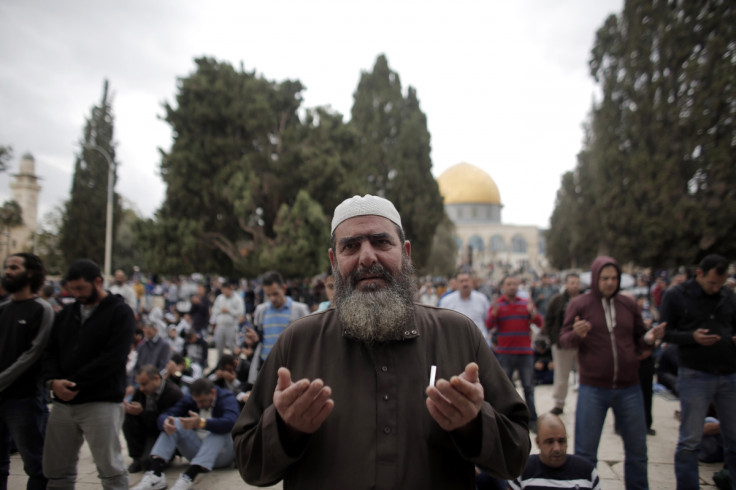Is Donald Trump hastening Armageddon? Anti-Muslim tycoon plans provocative tour to Jerusalem's Temple Mount

Donald Trump plans to go to the restive al-Aqsa Mosque compound during his visit to Israel at the end of December, Israeli media reported, just days after the Republican presidential hopeful caused outrage by claiming Muslims should be prevented from entering the US to prevent terrorist attacks.
The Jerusalem Post reported that the 69-year-old had asked his staff to study the feasibility of visiting the site, known as al-Aqsa to Muslims and Temple Mount to Jews, when the billionaire property mogul comes to meet Israeli Prime Minister Benjamin Netanyahu on 28 December.
The mosque compound – which is the holiest site in Judaism and the third most sacred in Islam – has been a flashpoint of violence throughout 2015 as Palestinians protest against what they claim is an increase in visits by right-wing Israelis. Jews are allowed to visit Temple Mount at certain times but are not permitted to pray.
A visit by Trump in the wake of his comments about Muslims would not only be controversial but likely dangerous and highly inflammatory. It was a visit to al-Aqsa by the late Ariel Sharon in 2000 that sparked the bloody four-year Second Intifada and amid a spate of stabbing attacks, riots and killings in the West Bank and Israel in recent weeks, Netanyahu will be reluctant to ignite the tinderbox by allowing Trump to visit the site.
But for US presidential hopeful, there is potentially political capital to be made by the visit. Right-wing evangelical Christians, who hold massive leverage within the Republican Party, are fixated by Jerusalem and Israel.
On the fringes, their political ideology is defined by apocalyptic religious beliefs that focus on the prophetic Revelation chapters 14, 16, 17 and 19 in the New Testament, which emphasise control and conflict over Temple Mount in the final conflict between good and evil –something that many hope is imminent.
Trump's visit has been criticised by some Israeli politicians after he called for a "total and complete shutdown of Muslims entering the United States" but Netanyahu has refused to cancel the trip, claiming that he will meet with any US presidential candidate that visits Israel.
But while Trump may want to visit Temple Mount it is unlikely that he will do so. Netanyahu has publicly told Israeli politicians not to visit the site since a spate of riots earlier in 2015, when Israeli soldiers fought with Palestinian stone throwers who barricaded themselves inside the mosque.
Israel captured the al-Aqsa Mosque compound in 1967 after the Six Day War but although it has military control, the site is administered by an Arab force known as the Waqf. In recent years, increasing numbers of radical right-wing Jews have attempted to access the site, leading to violence in Jerusalem and elsewhere in the country.
Jews believe al-Aqsa was built on the site of the First and Second Jewish Temple, destroyed by the Romans in AD70, while Muslims believe that the mosque marks the spot where Mohammed ascended to heaven. It is the third holiest site in Islam after Mecca and Medina and early Muslims used to pray towards Jerusalem until 622AD.
© Copyright IBTimes 2025. All rights reserved.






















